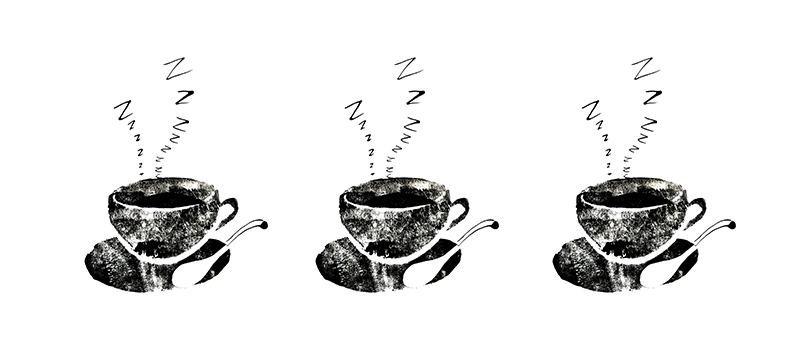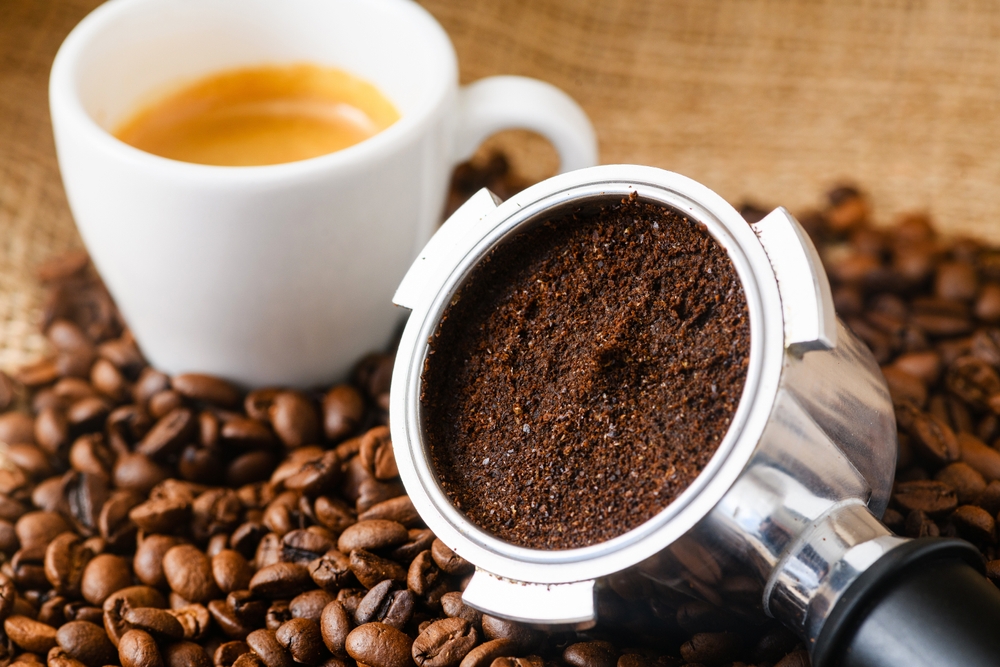‘Coffee is not unhealthy,’ explains Vincenzo Fogliano, professor of Food Quality and Design, ‘if drunk in moderation.’ In fact, one or two cups a day lowers the risk of diabetes, heart disease and strokes. Filter coffee is the healthiest; the filter actually keeps out some of the cafestol and kahweol, substances that increase LDL (bad) cholesterol. Cafetière coffee contains the most cholesterol-raising substances.
Coffee also contains the stimulant caffeine, which is a reason to drink it for a lot of people. It’s not great, though, if you want to sleep or you are highly sensitive to caffeine. For such cases, there is decaf. But decaf is not completely caffeine-free either: one cup still contains about three milligrams of caffeine, compared to 60 to 90 milligrams in a regular cup of coffee. You can never make good coffee with poor quality beans
Decaf is said to be bad for the drinker and for the climate because of the chemical process used to extract the caffeine from green, unroasted coffee beans. ‘In the past, dichloromethane was used for that,’ says Fogliano. ‘That’s a toxic substance that evaporates after the process. Nowadays, CO2 is used. Under high pressure, this gas becomes a liquid in which the caffeine dissolves and then evaporates. It’s a clean process and toxin-free.’ But the process does take a lot of energy, which is not good for the climate. Only a few factories in Europe use this CO2 method on a large scale, says Fogliano. ‘Because of the enormous scale, bulk quantities of coffee beans are used. And those are not the best quality beans. Coffee roasters usually use the best beans for regular coffee and the rest are used for decaf. One reason for this is that the decaffeination process removes certain disagreeable aftertastes.’
You can never make good coffee with poor quality beans
Vincenzo Fogliano, professor of Food Quality and Design
People sometimes find decaf less flavoursome. Understandably, says Fogliano. ‘But the mediocre quality of decaffeinated coffee has nothing to do with the process of decaffeination, and everything to do with the quality of the beans. In itself, decaffeination actually improves the taste a little. But you can never make good coffee with poor quality beans.’ But there is another advantage to taking the caffeine out of the beans: fungi that produce toxins can easily grow in coffee. ‘If that happens, you have to throw away the coffee. Some manufacturers choose a different solution: they turn it into decaf. With the CO2 you flush out not only the caffeine, but also the fungal toxins.’
Every day, we are inundated with sometimes contradictory information. So what are the facts of the matter? In this feature, a scientist answers your pressing questions. Every question you ask makes you a little wiser. Do you dare to ask yours? Email us at: redactie@resource.nl

 Illustration: Marly Hendricks
Illustration: Marly Hendricks 

![[The Proposition] ‘Climate-smart agriculture as a scientific field is a typical example of neocolonial science’](https://www.resource-online.nl/app/uploads/2024/02/DeStelling_online_UK_1811.png)